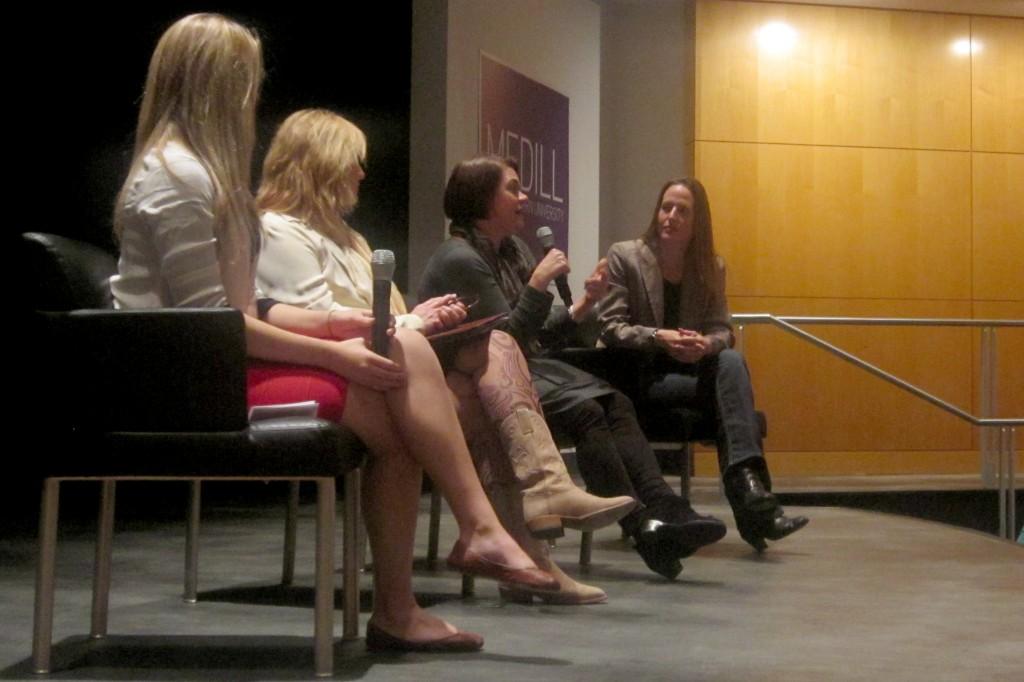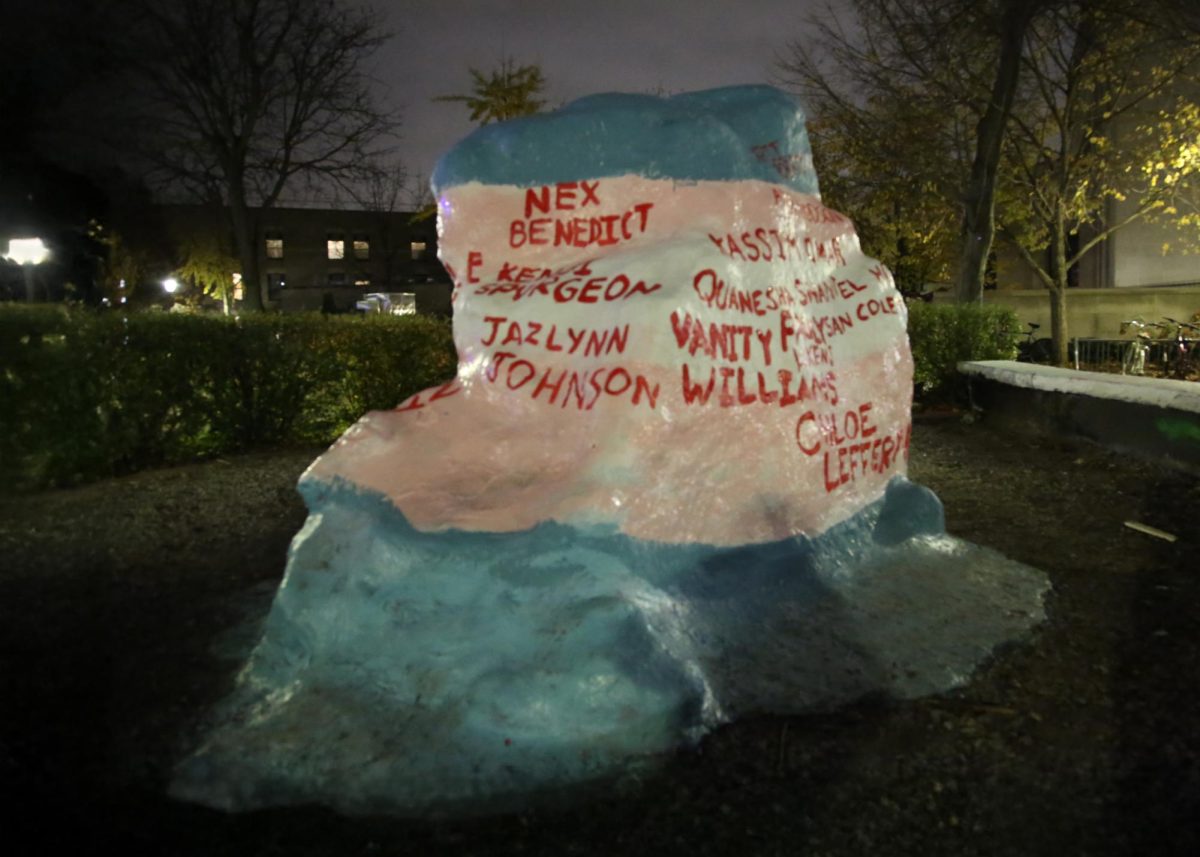The Northwestern community packed into the McCormick Tribune Center forum Saturday for a screening and discussion of a popular documentary about the media’s influence on the underrepresentation of women in power in the United States.
A panel discussion led by faculty from both Medill and the psychology department followed the screening of “Miss Representation,” sponsored by the Medill Undergraduate Student Advisory Committee, A&O Productions and the Women’s Center.
The 2011 documentary by Jennifer Siebel Newsom explores how portrayals of women in the media that frequently emphasize sexuality hinder women’s ability to gain power, particularly in politics. The film is a call to action to create a more socially responsible media and more positively portray females for girls.
“We thought it’s a great opportunity for us to shed some light on an issue that hasn’t been covered as much as we would like it to be,” said MUSAC co-chair and Medill junior Kimberly Lee.
The film was screened last year by the Women’s Center, but Lee said MUSAC wanted to team up with A&O and the Women’s Center to bring it back so that even more people could be exposed to it.
The panel featured Medill Profs. Michele Weldon and Patti Wolter and psychology Prof. Renee Engeln-Maddox. They took questions from a MUSAC representative as well as the audience of about 150 on topics ranging from the objectification of women in the media to how to invent policy that would improve the media’s portrayal of women without infringing on free speech.
The panelists also spoke to the film’s message of empowerment and encouraged the audience largely comprised of students to use their experiences to influence younger girls.
During a question-and-answer session, the panelists expressed to the largely female audience that the underrepresentation of women in powerful positions was not an issue just women should be advocating for, but a “human” issue that men should take part in addressing too.
“This affects all of us,” Weldon said.
SESP sophomore Thomas Hulley was quoted in “Miss Representation.” When Hulley was a high school student in San Francisco, Calif., the filmmaker interviewed students from his school. In the film, he says men should be involved in this dialogue because it is a collaborative effort and should not be one side against another. Hulley said the influential presence of his mother and two sisters in his life made this an important issue to him.
“They’ve given me a lot of love,” he said. “I want to be involved in this conversation.”
Hulley said he was very impressed by the panel, and he wished the speakers had more time. The film gained very positive reviews from many of the attendees who stayed to analyze the screening well after the official discussion was over, eating the Andy’s frozen custard provided by the sponsors.
Communication junior Charlotte Rosenberg said the movie made her think a lot about how she could create change herself.
“I think the experience was equal parts depressing and mobilizing,” she said.
Rosenberg said the film would greatly influence how she represents herself to the world in the future. Overall, she said the event was important, but she had one complaint.
“I really just wish there were more men here,” she said. “This is a discussion we should keep having.”













